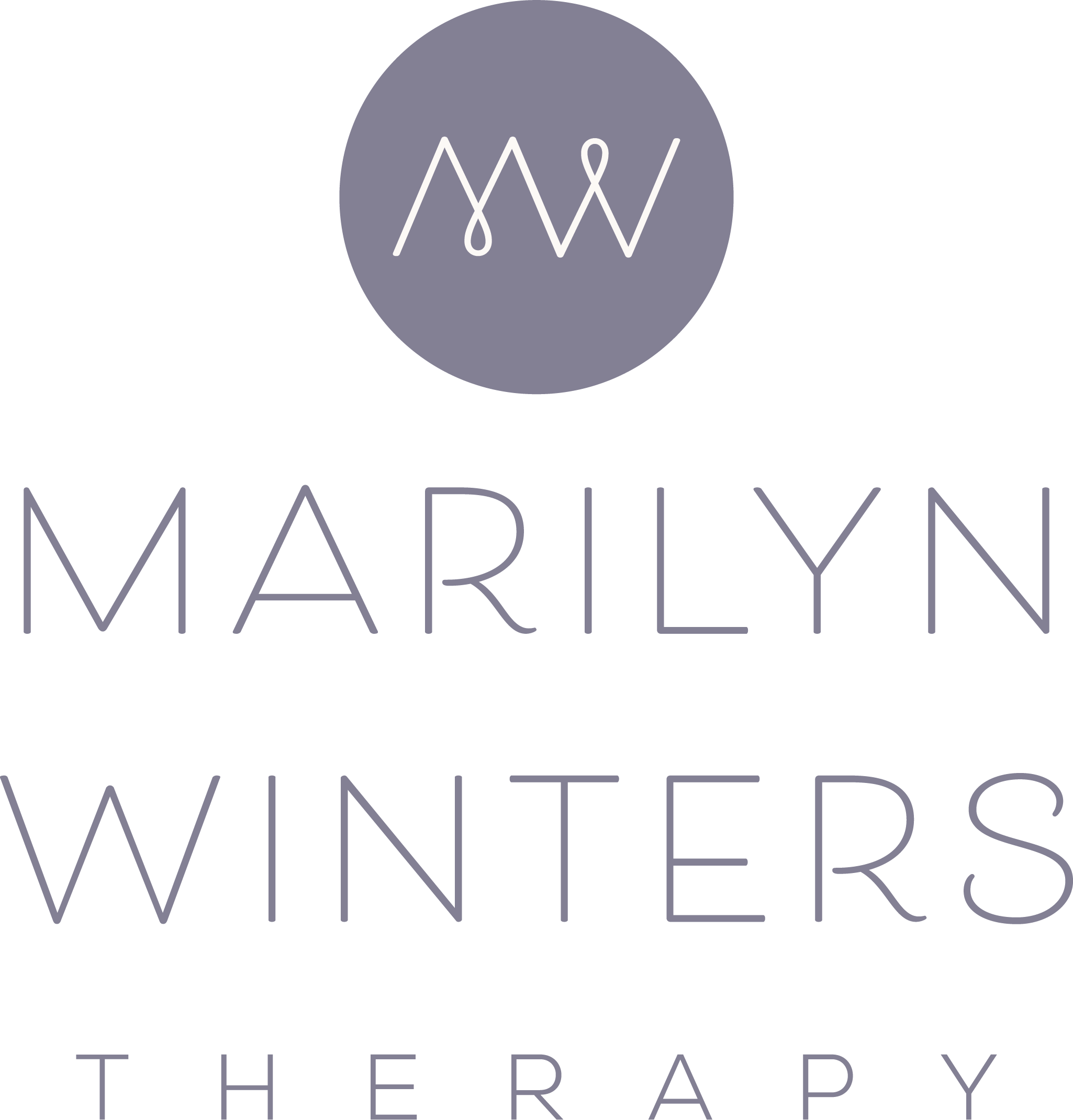services

Individual counseling or psychotherapy
The process of ‘talk therapy’ allows individuals to explore their feelings, thoughts and behaviors in a safe, non-judgmental and supportive setting. Psychotherapy offers the opportunity to process our lived experiences, change negative thought patterns or behaviors, and develop more helpful and healthy coping strategies. It is a collaborative treatment based on the relationship between an individual and therapist. Often our present-day symptoms including anger, anxiety and mood issues are connected to not being in tune with our needs, desires and wants. With increased self-awareness we can better understand our concerns, practice self-care and set boundaries, where needed. Therapy can get messy and painful at times however there are rewards when we do the work including, greater freedom, peace and joy. I use a variety of different treatment modalities that are tailored to meet individual needs.
couples therapy
Relationships can be tough to navigate. We can be disappointed that our relationship doesn’t look or feel like the fairy tale from the movies or books. All couples experience challenges in their relationships at one point or another. We can find ourselves feeling alone even when our partner is in close proximity to us. It can be so painful. We often turn towards negative coping strategies such as, fault finding, numbing, isolating or seeking an exit strategy, all in an effort to manage the pain of disconnection. Are you wanting to increase connection, rebuild trust, repair the emotional bond and enhance intimacy? Being in a strong, secure and loving relationship can be an amazing resource when dealing with stress. I am passionate about helping couples repair, heal and strengthen their bonds. Together, we can explore how the disconnect has arisen in your relationship and how to find your way back to each other again. The risk of getting our hearts broken or the discomfort of being vulnerable can feel scary but being able to heal what is broken and reach new levels in your relationship is so worth it. My therapy approach is informed by the Gottman Method and Dr. Sue Johnson’s model of Emotion Focused Therapy.


family counseling & therapy
We often see photos on social media of happy families living their best lives, which sometimes leave us feeling like we pale in comparison. There is no such thing as a perfect family. We all experience the messy stuff. Being a part of a family can be a place of protection, safety and love but can also be where deep-rooted pain lives. Unresolved issues within families build over time and usually get passed on from generation to generation. The strain and disconnect grows when we suppress, avoid or ignore issues and do not examine, try to understand and deal with them. Family therapy can feel daunting. We often worry about letting things out of pandora’s box or we feel hopeless because communication seems so toxic. My intention is to offer a safe place for families to address ‘the elephant in the room’ and to express concerns without fear of blowouts or further breakdown. Healing can occur when support, psycho-education and guidance is provided by a therapist who can facilitate communication and work with members to repair what is broken in the system. A family is defined by a group of individuals who care for one another and call themselves family.
online counselling
For your convenience, I offer secure and confidential online counselling sessions. This flexible option allows you to access support from the comfort and privacy of your own space.
Specialities:
Externship in Emotionally Focused Couple Therapy (EFT) through the International Centre for Excellence in Emotionally Focused Therapy in Ottawa (2013)
Certificate in Mindfulness Based Cognitive Therapy Facilitation through the Centre of Mindfulness Studies at the Factor-Inwentash Faculty of Social Work, University of Toronto (2014)
Eye Movement Desensitization Reprocessing (EMDR) through the Niagara Stress & Trauma Clinic EMDR Training Program (2019)
Treatment Modalities offered:
I use evidence-based treatment modalities, including:
Trauma-informed therapy is not about a specific intervention but rather tailoring interventions in the context of the individual’s trauma history, triggers, and specific needs. It is a lens through which the therapist views their clients, taking into account the impact of trauma on emotions, regulation, and behavior. They will also consider the effects of intergenerational trauma on clients.
Emotion Focused Therapy (EFT) An approach where human emotions, if discovered and worked through, can help improve emotional states and relationships.
A short term, goal-oriented form of psychotherapy that aims at identifying, recognizing and challenging unhelpful thinking patterns that lead to unpleasant moods and behaviours, and to adjust thinking patterns to enhance your mood.
The awareness that arises by paying attention, on purpose, without judgement of your thoughts in the present moment, and is practiced through meditation. When we are mindful, we can reduce stress, enhance sleep, improve relationships and overall health and wellness.
Often when we encounter the pain from trauma we run from the danger, we freeze and get stuck or we go into fight mode to defend ourselves. We do this for good reason. This is how we were wired for protection from threat. At some point along the way we begin to realize that these responses may have helped us in the past when we were in survival mode but they are no longer serving us. This approach teaches us to reflect on our past experiences with compassion and curiosity. We can learn to be grateful for our protective parts that helped us when we were vulnerable and needed them. Who knows where we would have been had they not stepped in as our inner critic, people pleaser or other behaviors that helped keep pain at a distance. Now we can gently remind ourselves that we are no longer in the wilderness being chased by a tiger. We can rise up as our true selves and be a resource to heal our inner child self. We can learn that we can confront the pain, tolerate the discomfort and explore new ways of living that bring more peace, calm and joy.
EMDR is an extensively researched psychotherapy approach proven effective and efficient in helping individuals recover from trauma and other mental health issues. EMDR uses the brain’s natural ability to heal from psychological trauma, much like the body recovers from physical trauma. It is understood that Post Traumatic Stress Disorder (PTSD) symptoms arise as a result of past disturbing experiences that continue to cause distress because the memory was not adequately processed. Unlike other treatments that focus on directly altering the emotions, thoughts and responses resulting from trauma using various talk therapy models, EMDR encourages individuals to focus directly on the trauma memory while simultaneously experiencing bilateral stimulation (eye movements). By changing the way the memory is stored in the brain the problematic symptoms are eliminated or reduced and the vividness and emotions associated with the trauma memories are desensitized. Ongoing research supports positive clinical outcomes showing EMDR therapy as a helpful treatment for disorders such as anxiety, depression, Obsessive Compulsive Disorder (OCD), chronic pain, addictions, and other distressing life experiences (Maxfield, 2019).
